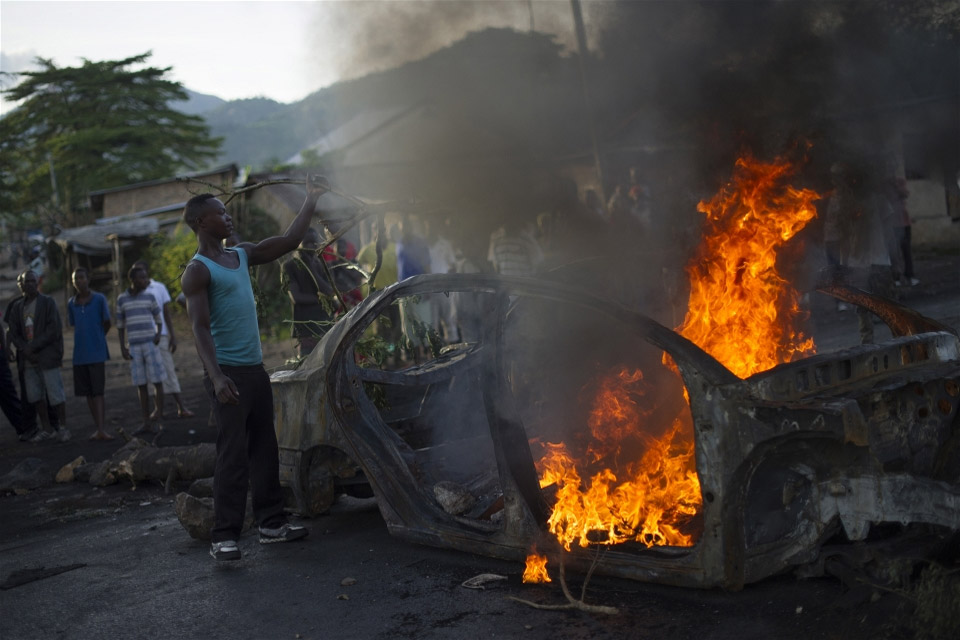Burundi has been in a state of political instability since President Pierre Nkurunziza decided to run for a contentious third term in office. With the suspension of NGOs, close surveillance of the population, the shut down of independent media and the departure of over 100 Burundian journalists, the State is beginning to resemble a dictatorship, reviving old civil war rhetoric from the 1993-2005 conflict.
Since that war, The UN has been prominent in restoring peace between the Hutus and Tutsis and in 2006 referred Burundi to the newly created UN Peacebuilding Commission. Developed to help post-conflict nations like Burundi and Sierra Leone avoid further violence, the tenuous peace it has maintained since then is now threatened if the politically opposed actors do not engage in actively inclusive dialogue.
US President Barack Obama’s historic speech to the African Union in July, reminded presidents in African countries that they should step aside when their term ends, that those who believed they are the only person who can hold their nation together had failed to build a truly stable nation during their time in office. President Obama cited Burundi’s April elections in particular; a process that the United Nations had said was ‘not conducive for an inclusive, free and credible electoral process’.
Late last year, the UN office in Burundi was closed at the request of the government. In February of this year, the Burundian Police and National Defence Force committed extrajudicial execution upon 47 surrendered rebels while the key opposition leader, Zedi Feruzi, was killed on 22 May. Targeted attacks against police and government officials have been increasing, threatening previously safe areas and forcing thousands of civilians to flee the country. Since the outbreak of violent street protests against Nkurunziza’s re-election in April, where 65 protestors were arrested for ‘rebellion’, 277 people have been killed in the Central African Country. 41 of these killings have happened in the past three weeks when the president ceased the call for citizens to hand in all weapons. Over 280,000 Burundians are now refugees, crossing borders to seek safety.
The Burundi government has suspended 10 international and local non-government organisations, while at least 15 NGO directors have been forced to leave after receiving direct threats toward themselves or their family. Four NGO members have been killed, two by police and two by unidentified armed men. One of the recently suspended NGOs is the Association for the Protection of Human Rights and Detained Persons (APRODH), led by Pierre Claver Mbonimpa, who has lost his son and son-in-law and only narrowly escaped an attempt on his own life in August.
The State is suffering isolation as international relations become increasingly strained. The United States, the African Union and the European Union have implemented targeted sanctions while the UN Security Council adopted a resolution on the 13 November that strongly condemned the ongoing killings and human rights violations. The UN High Commissioner for Human Rights Zeid Ra’ad Al Hussein hopes that the country can still avoid a full-fledged civil war. Mr Zeid says, ‘The suspension of NGOs and media outlets appears to be an attempt by Burundian authorities to silence dissenting voices and to limit the democratic space’.
In face of brutal killings, a culture of impunity and the systematic violation of human rights against any person expressing views contrary to the government, the global community is concerned. Independent Rapporteurs at the UN warned the UN that ‘horrendous manoeuvres and strategies’ were being used to ‘stifle a plurality of views’ and called for ‘political solutions to prevent further deterioration of the situation’.
